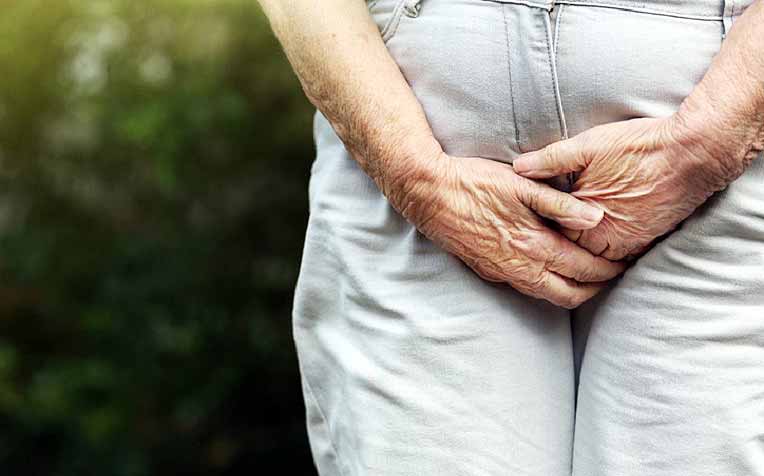HealthXchange will NEVER ask you to transfer money over a call. If in doubt, call the 24/7 ScamShield helpline at 1799, or visit the ScamShield website at www.scamshield.gov.sg.
Urinary Incontinence in the Elderly

Urinary incontinence in the elderly can be caused by other factors besides old age including underlying medical conditions.
Do you wet yourself when you cough, sneeze or laugh?
Have you had continuous dribbling of pee because your bladder did not empty completely?
"These are possible symptoms of urinary incontinence – which refers to an unwanted and accidental leakage of urine caused by an inability to control the bladder," explains Dr Soh Ling Ling, Associate Consultant for Post-Acute and Continuing Care at Sengkang Community Hospital (SKCH). SKCH is managed by SingHealth Community Hospitals, a member of the SingHealth group.
"Age and gender are two risk factors. Urinary incontinence is more common in older adults, especially among women who have experienced pregnancy, childbirth or menopause," she adds.
Causes of urinary incontinence in the elderly
1. Old age
As we age, the bladder becomes either weaker or overactive. The pelvic floor muscles also get weaker, especially in women who have borne children. When the bladder and these muscles are not functioning normally, they may relax without warning and cause urine to leak.
2. Underlying medical conditions
Some elderly patients suffer from medical conditions which damage nerves that control the bladder. Examples include Diabetes mellitus, stroke, Parkinson's disease and other conditions that affect the brain or nerves. There are also other issues that can affect an elderly's mobility such as arthritis or frailty, which make it difficult for them to get to the toilet in time.
3. Constipation
The elderly may face difficulties with chewing and swallowing, and thus avoid fibre-rich diet such as fruits and vegetables. Some elderly also do not drink sufficient water because of the inconvenience of having to visit the toilet too often. These can lead to constipation. When the bowel is too full because of constipation, it puts pressure on the bladder and can affect the pelvic floor muscles, causing involuntary urine leakage.
4. Urinary tract infection
Urinary incontinence can be a symptom of urinary tract infections, which the elderly are more prone to.
5. Enlargement of the prostate gland (for men)
The prostate gland is located just below the bladder in men. An enlarged prostate, which is a common condition in elderly men, may put pressure on the urethra (which carries urine out of the body) and block the natural flow of urine.
Read on for tips to cope with urinary incontinence.
Contributed by
Related Articles
Public Events
Get the Health Buddy App
© 2025 SingHealth Group. All Rights Reserved.
















 Get it on Google Play
Get it on Google Play